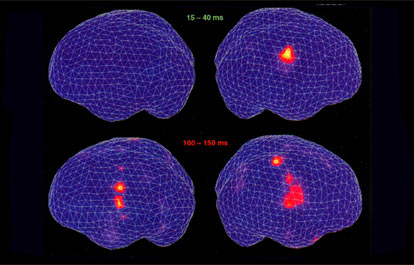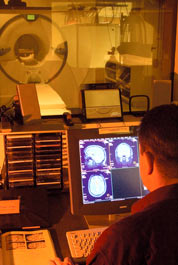

Scientific Lectures //
Placebo Responses: A Resiliency Mechanism?
Jon-Kar Zubieta, Ph.D. - Research Professor, MBNI Phil F. Jenkins Research Professor of Depression; Professor, Dept. of Psychiatry; Professor, Dept. of Radiology, The Molecular and Bahavioral Neuroscience Institute, The University of Michigan
Presented: October 25, 2012
ABSTRACT: In science, profound changes in paradigm have emerged when previously unexplained phenomena, typically disregarded as noise or measurement error, are explained by a new theoretical structure. That was the case for physics, when observations unaccounted for by classical mechanics led to the development of relativism, while the “noise” in relativity theory became the source of quantum physics. If a comparable phenomenon could be found in medicine, an unexplained source of variance, it would undoubtedly be the so-called “placebo effect”, the elicitation of a change in biology as a consequence of inactive treatments. Substantial neurobiological placebo effects have been described in a number of pathologies, with initial reports and the larger number of mechanistic studies on the topic arising from the field of pain. A network of regions, including the rostral anterior cingulate, dorsolateral prefrontal, orbitofrontal and insular cortex, nucleus accumbens, amygdala and periacueductal gray have been implicated in various studies using clinical or experimental pain models, with dopaminergic and endogenous opioid neurotransmission playing a prominent role. These two neurotransmitter systems form part of neural networks implicated in responses to stress, their regulation, and are further subject to interindividual variation in their function by genetic variation, neurodevelopmental and neurodegenerative factors, and exposure to, for example, substances of abuse. Those interindividual variations are of critical importance to understand the formation of placebo responses not only in the field of pain, but also in pathological states where dopaminergic and opioid systems are centrally involved, which may include movement disorders (e.g., Parkinson Disease), the mood and anxiety disorders, and the substance use disorders and their treatments. An assessment of these mechanisms has relevance not only in the field of clinical trials, but also to determine potential mechanisms of resiliency from disease.
To view presentation please click here.

